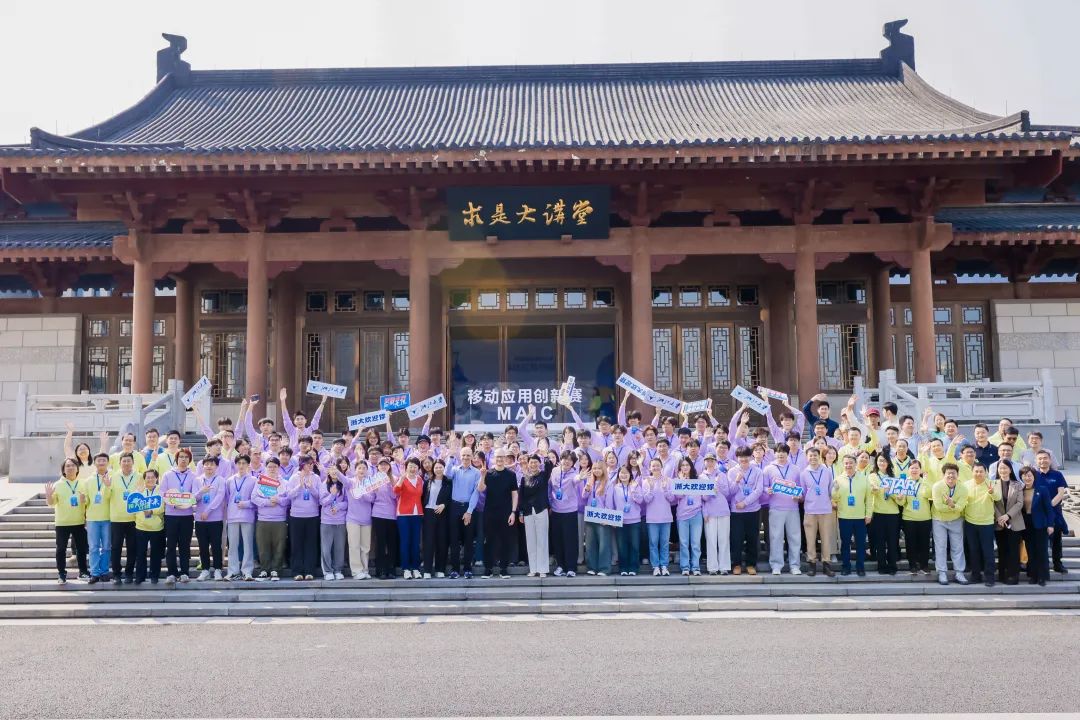As Hangzhou welcomes its most beautiful spring, the 10th “China Collegiate Computing Competition – Mobile Application Innovation Track” was officially launched on March 26 at the Zijingang Campus of Zhejiang University. Zhejiang University Party Secretary Ren Shaobo and Apple CEO Tim Cook attended the opening ceremony.
Let’s take a closer look at this vibrant celebration of innovation.
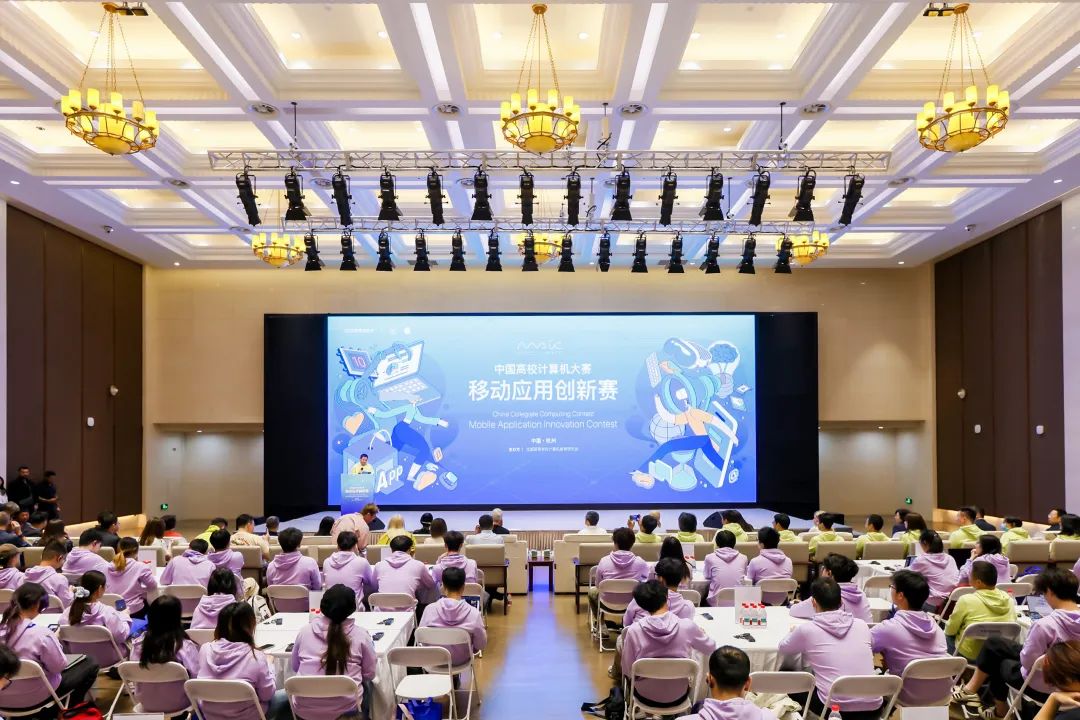

Building a Global Brand of Innovation
Jointly organized by Zhejiang University and Apple, the “China Collegiate Computing Competition – Mobile Application Innovation Track” has marked its tenth year. The competition has engaged more than 650,000 students and faculty members across nearly 1,000 universities in all provinces of China, becoming a major platform for showcasing student innovation and creativity.
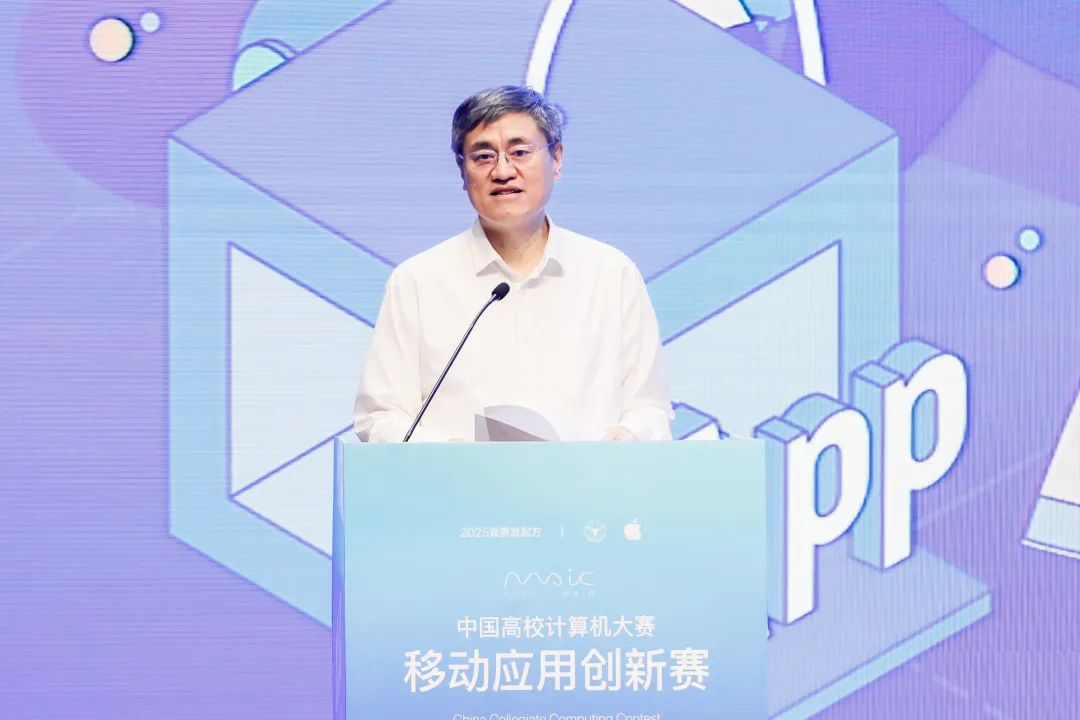
Ren Shaobo noted that Zhejiang University is committed to knowledge innovation and cultural leadership, striving to contribute to China's modernization and the advancement of human civilization. In recent years, the university has actively promoted innovation-driven entrepreneurship education, advanced “AI for Education” teaching reforms, and accelerated the development of a new paradigm for intelligent, human-AI collaborative learning.“The Mobile App Innovation Competition has effectively stimulated students' creative thinking and provided a valuable platform for young people to gain hands-on innovation experience. We hope this year’s competition will inspire even more forward-thinking and practical innovations,” Ren said.
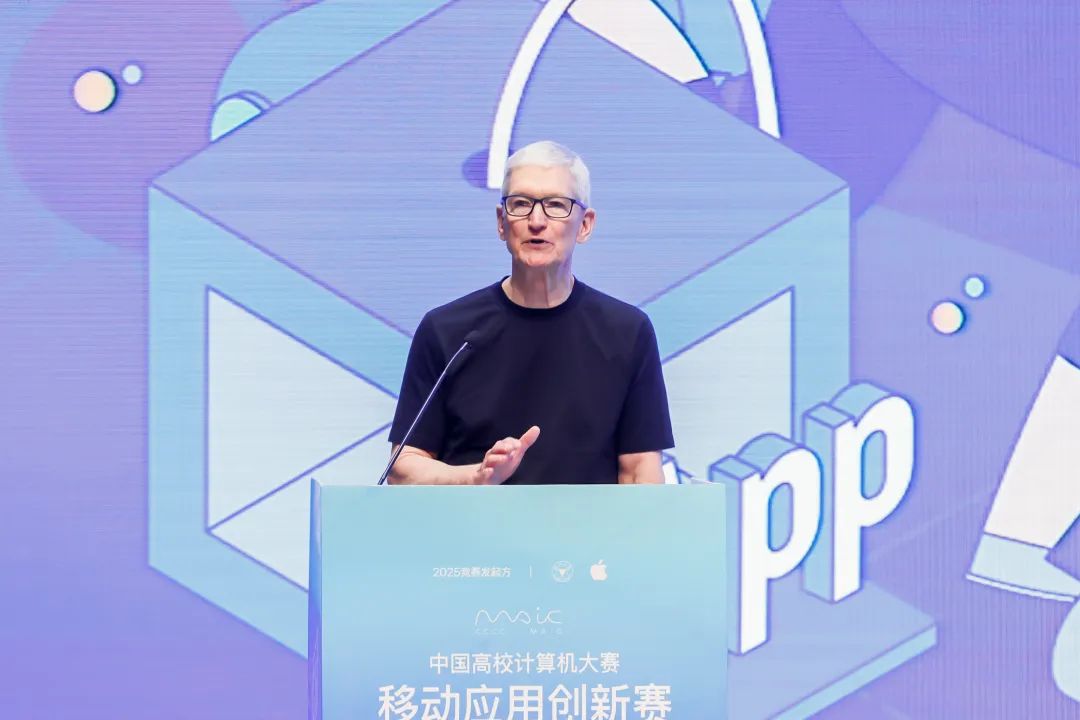
Tim Cook remarked, “This competition empowers young coders to expand their skills, connect with one another, and pursue their most creative ideas. These young innovators have designed incredible mobile apps and achieved extraordinary accomplishments. Apple will continue working with Zhejiang University to support aspiring developers and further strengthen the mobile app developer ecosystem.”
Exploring the Boundless Frontiers of Education
Since forming a strategic partnership in 2016, Zhejiang University and Apple have collaborated deeply through innovative mechanisms, especially in talent development and global educational resource sharing.
The Mobile App Innovation Competition, co-hosted by both parties, stays true to its student-centered mission—encouraging even beginners to join, learn through the competition, and transform ideas into entrepreneurial ventures. This“course–competition–innovation” integrated talent development model is at the core of the initiative. This year, the competition will expand to include students across all educational stages: primary, secondary, vocational, and higher education.
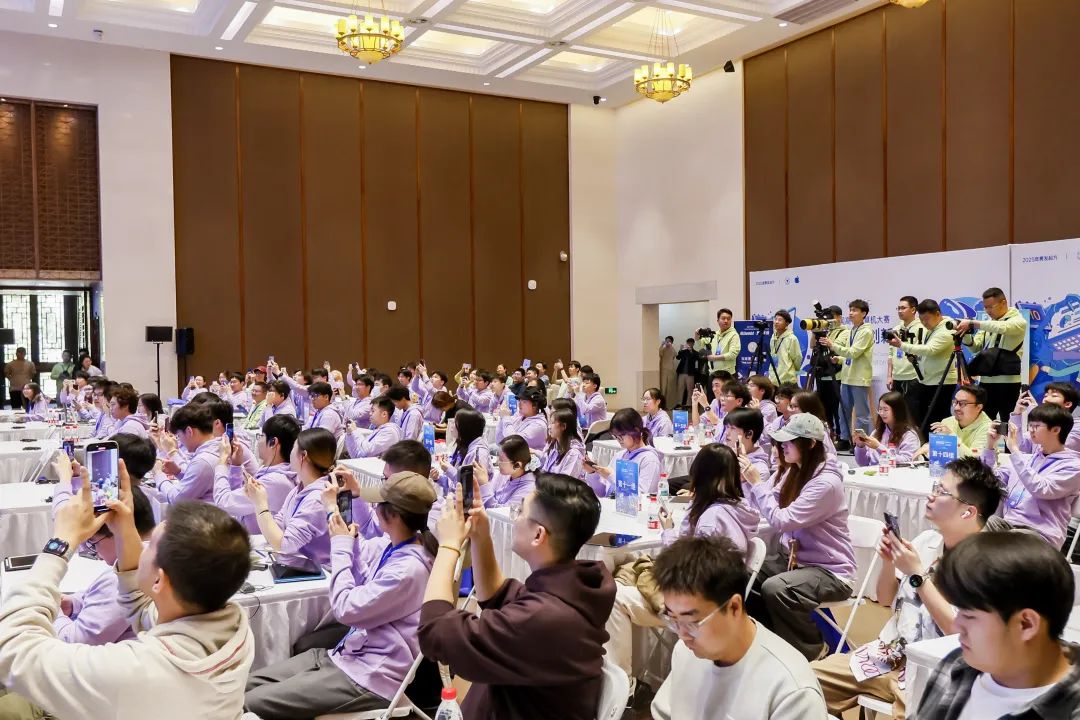
Over the years, the competition has nurtured a cohort of globally minded, innovation-driven talents. During the launch ceremony, Tim Cook toured a showcase of outstanding projects from past competitions, including two standout entries from Zhejiang University.
Zhang Lekai, a 2018 PhD graduate from the College of Computer Science and winner of the inaugural “Most Innovative Award,” said, “I hope to unlock human potential through technology, solve complex real-world problems, and create endless possibilities.” After graduating, Zhang became a university teacher, committed to inspiring students to develop innovative applications that enhance individual and societal well-being.
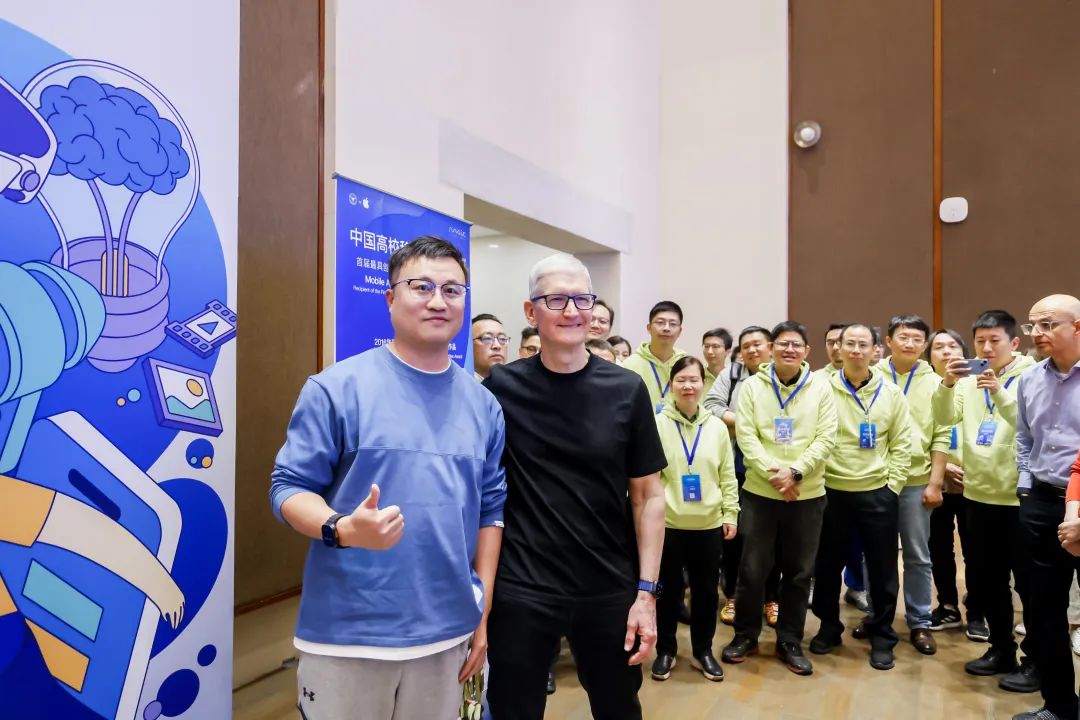
Wang Zhenyang, a current master’s-to-PhD student who joined the College of Computer Science in 2024, received the “Most Innovative Award” in the sixth competition. He was a third-year undergraduate when he discovered the competition, which opened the door to innovation and entrepreneurship for him. Through continuous refinement of his project, he gradually matured into a young entrepreneur.
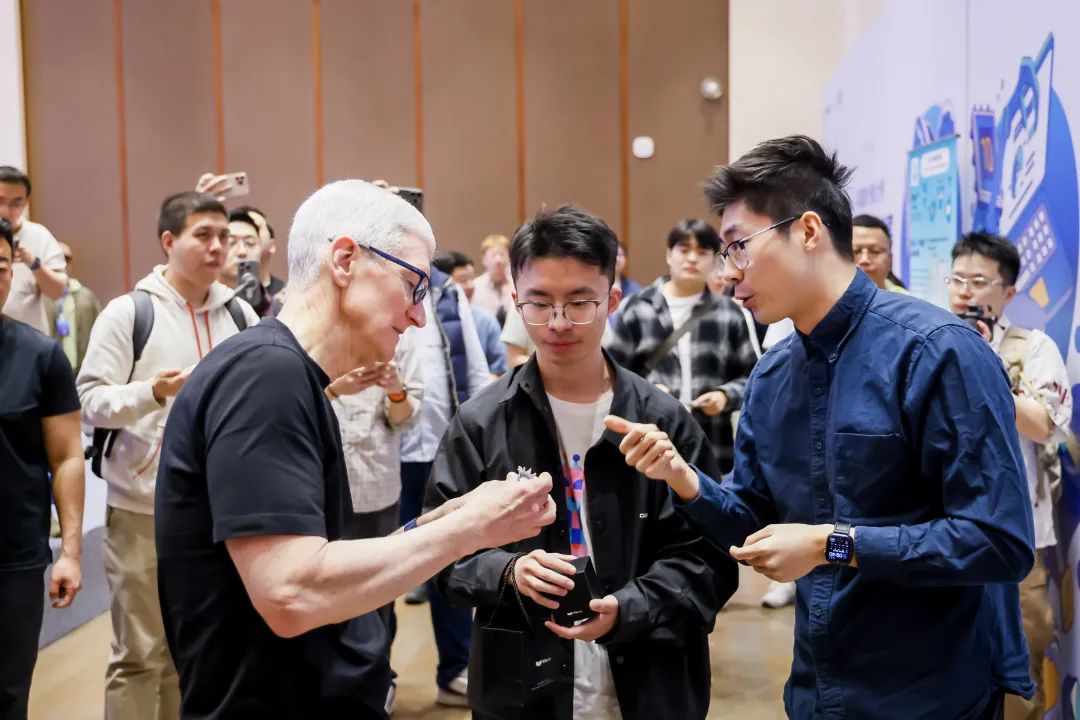
Tim Cook engaging with Zhejiang University students. First from the right is Wang Zhenyang.
Zhejiang University remains guided by its motto of “Seeking Truth and Innovation,” striving to build a student-centered, excellence-driven educational framework. The university is committed to nurturing innovation-led entrepreneurship education, fostering a more open innovation ecosystem, and advancing the integration of education, technology, and talent. Its goal is to empower students not only to “read books well,” but to “create well”—inspiring more world-changing dreams and cultivating innovative minds for the advancement of science and humanity.
